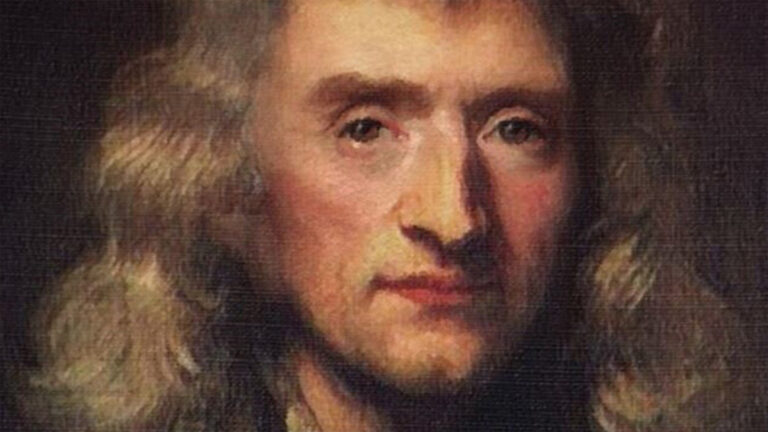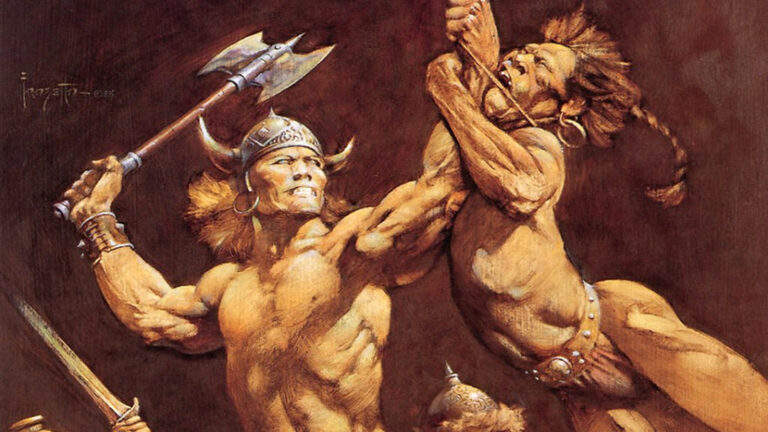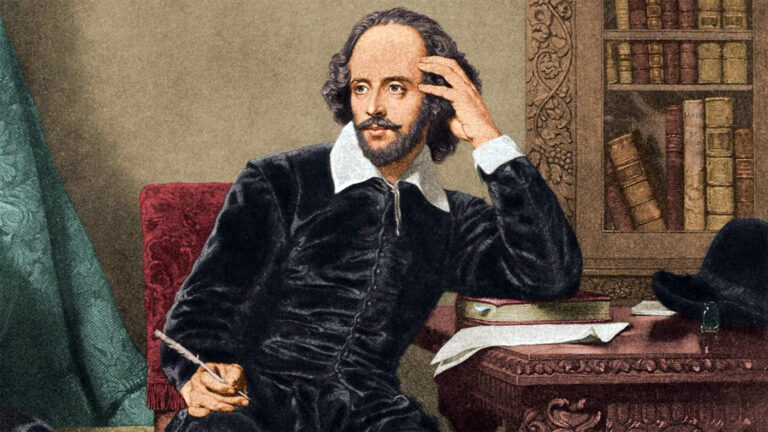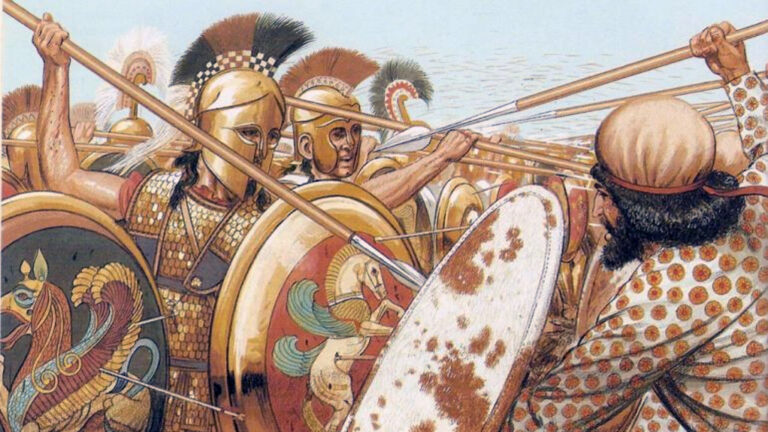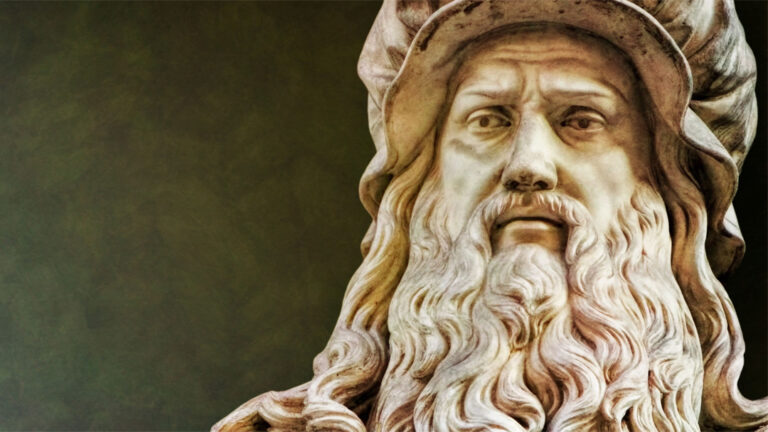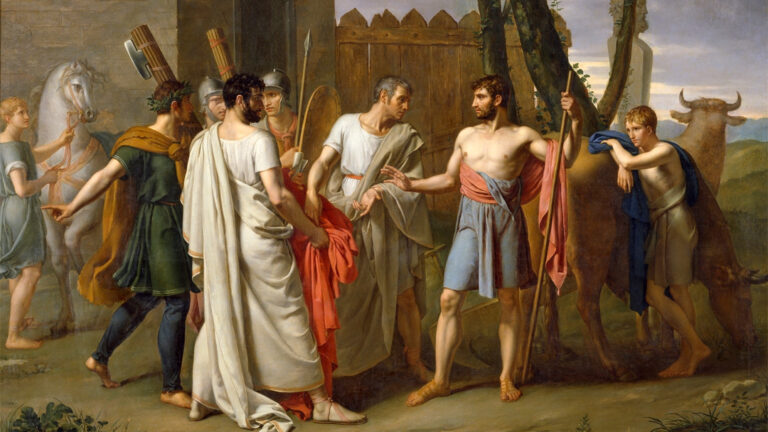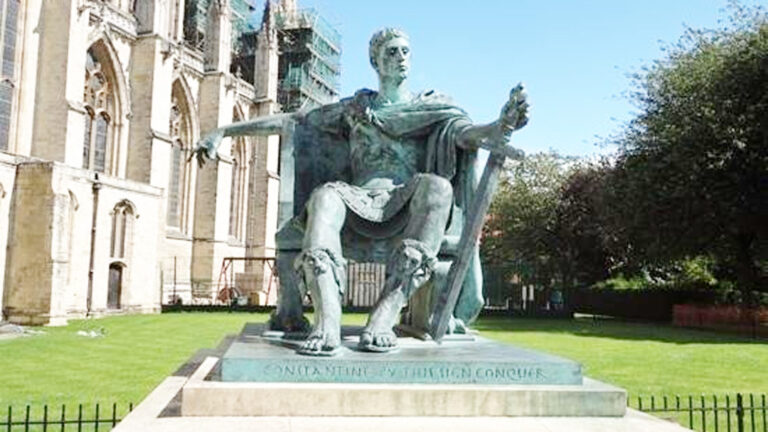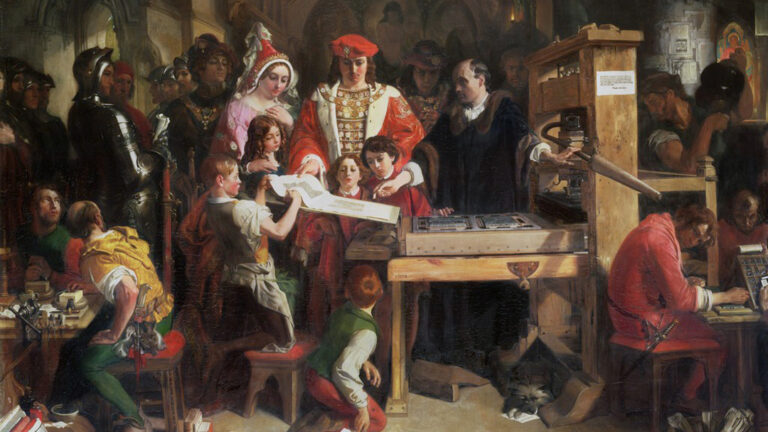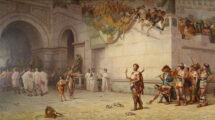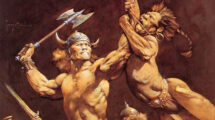Conducting: Steward. Opening Remarks/Announcements (Announce that at the end of the meeting we will:(i) sign up new members; (ii) ask for contributions on the website or take up a collection).
Steward: Explanation of Ethical Overlay. The purpose of the Ethical Overlay is to provide an overlay to ethical, moral and religious beliefs in areas of identity, family and heritage, to promulgate ethical and moral policy and to help each individual to become a better person and preserve the environment for future generations. Announcements will be at the end of the meeting.
Congregant: Opening words of Inspiration
Our citizenship is a priceless honor whose significance and meaning has been trivialized over the past decades. With the glorification of illegal immigration and the emergence of state welfare, socialized healthcare, and other aberrations from a true republic, an understanding of civic virtue has also been lost. We have forgotten the lessons of model Roman citizen Cincinnatus and the admonition of John F. Kennedy to “Ask not what your country can do for you – ask what you can do for your country.” Studying our history and valuing our heritage will teach us how to be better, more upright citizens so that we have the ability to influence our world for the better.
Steward: We will now have a Moment of Silence for: __(decide locally)___. [about 20 second pause].
J.S. Bach is the most well-known today from a long family line of musicians. He lived 1685-1750 and had a significant impact on generations of composers who followed him, including Mozart and Brahms. Bach’s role as a church musician means that much of the music he wrote was for organ. His Toccata and Fugue in D-minor is easily recognizable from its punctuated opening and has made many appearances in film.
Steward: We will now have a discussion on the following topic:
Discussion: The Story of Cincinnatus
Cincinnatus lived in the 5th century BC as a patrician. His son’s poor political behavior earned Cincinnatus a hefty fine, and he was forced to sell all his property and live as a farmer. Cincinnatus served as consul one year and then returned to his farm. It was while he was working hard at the plow, or possibly digging a ditch, that an envoy of senators came with an important message. Cincinnatus was laboring barebacked, so that the senators told him he needed to put on a toga in order to be presentable enough to hear the message they had for him. According to Livy, “he was greatly astonished and — asking repeatedly ‘if everything was safe?’ — called to his wife Racilia, ‘to bring his toga from the hut.’
When he had put it on, and wiped off some of his sweat and dust, he presented himself; and the envoys at once congratulated him and saluted him as dictator; next they summoned him into the city and explained the sore plight of the army,” which had been trapped and surrounded by Rome’s enemies in a canyon. It was partially due to poor leadership that the Roman army was in these straits, and Cincinnatus quickly assembled a force to the rescue. His tactics led to the surrender of the enemy forces within a single day, and he was celebrated in triumph when he returned to Rome at the head of both the Roman army and his own rescue force. However, even having been granted the dictatorship for the standard term of 6 months, Cincinnatus relinquished the title a mere 16 days after receiving it and returned to his farm.
- What made Cincinnatus a model citizen?
- What motivated Cincinnatus to return to his farm instead of retaining the powers of a dictator?
- What virtues are inherent in farming your own land? How can we attain these virtues in other endeavors?
- What does it mean to be a good citizen? What actions does it entail?
- What impact can a good citizen have?
- Why is it important for a nation to be made up of citizens who value their national identity? How does multiculturalism dissolve national identity?
b. What made them so?
Congregant: Closing words of inspiration.
“A strict observance of the written laws is doubtless one of the high virtues of a good citizen, but it is not the highest. The laws of necessity, of self-preservation, of saving our country when in danger, are of higher obligation.” -Thomas Jefferson
“It is not always the same thing to be a good man and a good citizen.” -Aristotle
Extend an invitation/commitment to apply one thing learned this week.
Steward: Take contributions from group made payable to Ethical Overlay. [Take cash, checks, or commitments to pay online].
[Adjournment]
Announcements and Questions after adjournment
